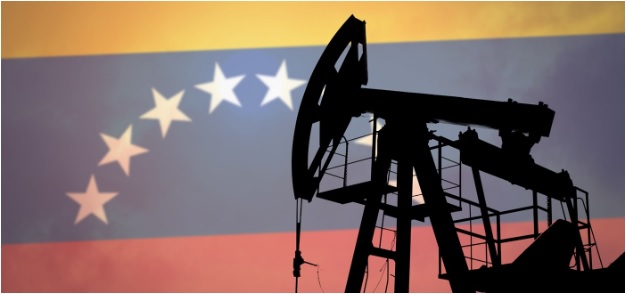Hyperinflation, public unrest, soaring debt, food and medicine shortages, massive deaths of newborns, and the list goes on and on. How exactly did Venezuela, once one of the wealthiest countries in the world, praised for its democratic stability, reach such a tipping point?
To paint a pretty grim picture of the day-to-day reality in Venezuela: a simple cup of coffee costs 20, 000 Bolivars (Venezuela’s currency at that time) in December 2017 while the minimum wage was only around 25, 000 bolivars which was barely equivalent to a mere $0.25. This gives us a good insight into living conditions of Venezuelans and on how low Venezuela’s purchasing power has dropped over the years. Nearly 3 million children in Venezuela are either partially attending school or not at all due to hunger and lack of public funds. Venezuela is on a downward spiral and, on top of that, the country is facing a turbulent political future: on one side we have Nicolas Maduro, a ruthless dictator, the official president and on the other side we have Juan Guaidó, a self proclaimed president backed by several countries including the United States of America (USA). The general public in western nations has not yet realised the extent of the humanitarian crisis Venezuela is facing. The future is getting worse day by day for Venezuelans.

Venezuela has the largest proven oil reserve in the world, totaling 297 billion barrels
A brief history of time
- 1998 – The start of the Venezuelan revolution
Then ravaged by corruption, Venezuela elected Hugo Chavez, who presented himself as the champion of the poor. He was determined to redistribute the country’s huge wealth derived from their oil reserves.
(Oil price per barrel: ~$7-$9)
- 1999 – Sharp increase in oil prices
Chavez unlike any other Venezuelan President was blessed during his active years by a flourishing oil price. It had risen at an unprecedented rate, reaching $100+ per barrel in 2008. This presented President Chavez with a huge purchasing power. The regime invested heavily in social welfare programs. Almost every basic need including health care, access to food and education were subsidised by the Government. Poverty decreased by over 70
By 2012, oil accounted for 95
Hugo Chavez was re-elected as Venezuela’s President in 2012 but was unable to be sworn in for his fourth term due to illness. He eventually died of cancer on March 2013. It was Nicolas Maduro, his hand-picked successor, who replaced him as Venezuela’s 46th President. Due to major political and economic mismanagement during Chavez’s presidency, pressing issues such as corruption, the need for diversification of the economy, adequate plan to support the social welfare programs in the long run, were all left unaddressed, Maduro inherited an already vulnerable and damaged economy. Things got worse for Maduro when oil prices started to plummet. Maduro’s failure to tackle the shrinking economy resulted in a huge loss of his popularity. This prompted the opposition to make a historic coalition forming a two-third majority in the National Assembly, which rendered him toothless. His response to the situation was irrational; he forced out many supreme court judges replacing them with pro-government judges. At this point, he already passed the point of no return to dictatorship. The Supreme court ruled to strip the national Assembly of its powers. It caused the start of widespread protests nationwide. The decision was eventually reversed but the damage was done. At least 153 people died since the beginning of these protests. In another attempt to gain full power, Maduro formed a new governing body called the National Constituent Assembly, which had the power to rewrite the constitution. Eventually, it did replace the existing National Assembly. It was the decisive blow. Nicolas Maduro had full control over the Governing body. Despite having so little support among the general population, Nicolas Maduro somehow managed to be re-elected in 2018. This can be explained by the arbitrary arrests of opposition leaders, or the fact that the election had the lowest turnout in Venezuelan history. The opposition did not recognise Nicolas Maduro’s re-election and international observers such as the Financial Times described the election as a sham. On the 23rd of January 2019, the Venezuelan crisis took another dramatic turn of events. The president of the National Assembly, Juan Gaido, declared himself “acting president”, citing articles 233 and 333 of the Venezuelan constitution to legitimise his position. On one side, the USA as well as other western nations and the majority of South American nations endorsed Juan gaido while China, Iran, Cuba, Russia and Turkey unsurprisingly continued to back Nicolas Maduro. Nicolas Maduro has cemented his position through the support of the Supreme Tribunal, the National Electoral Council and most importantly the military, by giving incentives such as the promotion of 16,900 members of the armed forces. Maduro has all the power on his side. The latest events could have further undesirable ramifications. Many fear that Venezuela could become the ground for a proxy war between Western Nations and the Iran-China-Russia alliance. Unfortunately the general population is always the first victim and we are already observing the consequences of these latest events. Nicolas Maduro has blocked humanitarian aids from the USA and other countries from entering the country, accusing them of using these aid as a weapon in this power struggle. We have yet to realise that the refugee crisis in Venezuela is just as horrendous as the war in Afghanistan and South Sudan for example. Since 2015, Venezuela has already lost more than 3 million of its population and with the latest events we suspect another mass exodus. The world is not prepared to deal with another Syria. Regrettably, we do not expect a powerthirst insensitive autocratic ruler to willingly give up his powers for sensible peaceful negotiations. Ashwin SOOBHUG


What’s next?


